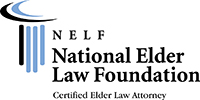The recent case of Clark v. Rameker, 134 S. Ct. 2242 (2014), the U.S. Supreme Court unanimously ruled that inherited IRAs do not qualify for the bankruptcy exemption afforded to a debtor's own retirement accounts. Heidi Clark and her husband filed for Chapter 7 bankruptcy and claimed an IRA that Heidi had inherited from her mother as exempt. Originally, the Wisconsin Bankruptcy Court ruled that Ms. Clark’s inherited IRA was not exempt as a retirement account. After winding through federal district court and the Seventh Circuit Court of Appeals, the U.S. Supreme Court heard the case. The Court unanimously ruled that inherited IRAs do not qualify for the bankruptcy exemption afforded to a debtor's own retirement accounts. The Court’s ruling was based on three factors differentiating between an inherited IRA and a beneficiary’s own IRA:
1. The beneficiary of an inherited IRA cannot make additional contributions to the account. An IRA owner, however, can make additional contributions to the account.
2. The beneficiary of an inherited IRA must take required minimum distributions from the account regardless of how old the beneficiary is. An IRA owner, however, can defer distributions at least until age 70 1/2.
3. The beneficiary of an inherited IRA can withdraw all funds anytime, for any reason, without a penalty. An IRA owner must generally wait until age 59 1/2 to take distributions without incurring penalties.
Firm News
6025 Hits












